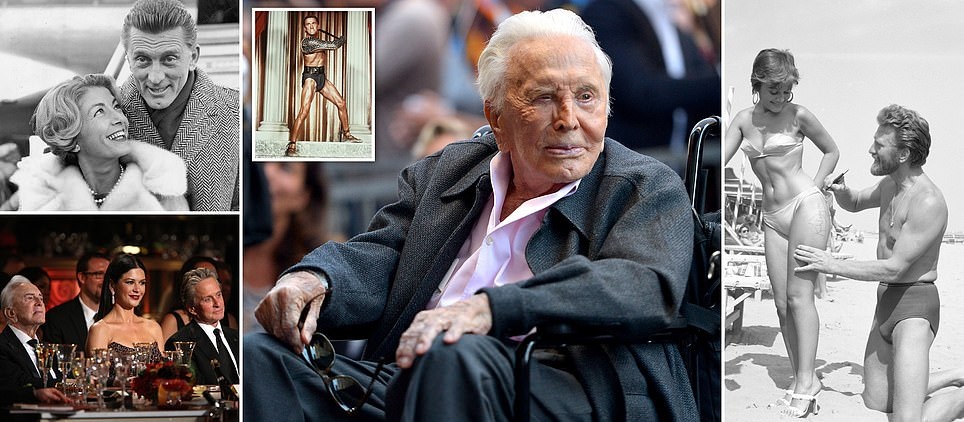Kirk Douglas, a Hollywood icon and Presidential Medal of Freedom recipient, has died at 103.
The honorary Academy Award winner died Wednesday, his son, actor Michael Douglas, said in an Instagram post.
“Kirk’s life was well lived, and he leaves a legacy in film that will endure for generations to come, and a history as a renowned philanthropist who worked to aid the public and bring peace to the planet,” Douglas wrote.
“Let me end with the words I told him on his last birthday and which will always remain true. Dad — I love you so much and I am so proud to be your son.”
The star of “Spartacus” – the 1960 film that helped to end the Hollywood blacklist – didn’t shy away from discussing politics during his career that spanned more than six decades.
In a 2012 interview with Variety, Douglas said of making “Spartacus” that “the [political] climate was similar to the climate we’re having now. And what I mean by that is, there are too many Republicans, too many Democrats, and not enough Americans.”
When asked in 2017 about President Trump’s election victory, Douglas, a lifelong Democrat, told The Guardian, “Let’s just say I didn’t vote for him.”
Douglas was recognized by multiple commanders in chief, and in 1981, President Jimmy Carter awarded the performer the Presidential Medal of Freedom, the highest civilian honor. Douglas also received the National Medal of Arts award from President George W. Bush in 2002.
Douglas was the son of Jewish Russian immigrants who rose through the ranks to become one of Hollywood’s biggest-ever stars.
The famed actor and producer, who was one of the last of Hollywood’s Golden Age, made more than 90 movies in a career that stretched across seven decades.
He was renowned for the macho tough guy roles he took on.
Films such as Spartacus and The Vikings made him one of the biggest box-office stars of the 1950s and 60s.
Douglas received critical acclaim for his role in the 1960 classic Spartacus where he played the gladiator leader of a Roman slave revolt. His real breakthrough came as an unscrupulous boxer in 1949’s Champion, a low-budget production he was advised to turn down.
He worked with some of Hollywood’s greatest directors – from Vincente Minnelli and Billy Wilder to Stanley Kubrick and Elia Kazan. His career began at the peak of the studios’ power, more than 70 years ago, and ended in a more diverse, decentralized era that he helped bring about.
He was nominated three times for the best actor Oscar in 1949 for Champion, The Bad and the Beautiful in 1953 and Lust for Life in 1957.
Douglas never received an Academy Award for an individual film but the Academy of Motion Picture Arts and Sciences awarded him an honorary Oscar in 1996 for his role as a creative and moral force in the movie industry.
In his latter years, he was a final link to a so-called ‘Golden Age’ – a man nearly as old as the industry itself.
His movie career faded during the 1960s and Douglas turned to other media.
In the 1970s and 1980s, he did several notable television films, including Victory at Entebbe and Amos, which dealt with abuse of the elderly.
In his 70s, he became an author with his books including the memoir The Ragman’s Son, the novels Dance With the Devil and The Gift and a brief work on the making of Spartacus.
Douglas also became one of Hollywood´s leading philanthropists. The Douglas Foundation, which he and Anne Douglas co-founded, has donated millions to a wide range of institutions, from the Children´s Hospital Los Angeles to the Motion Picture & Television Fund.
In 2015, the foundation endowed the Kirk Douglas Fellowship – a full-tuition, 2-year scholarship – at the American Film Institute.
Douglas is survived by his second wife Anne Buydens, 100, and three sons.
A fourth child, Eric, died of a drug overdose in his 40s, in 2004.
